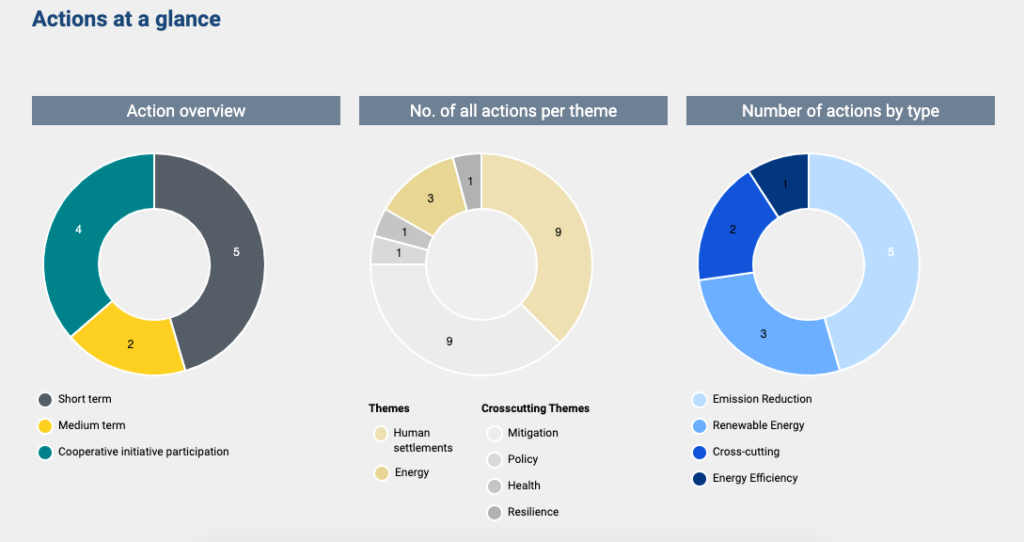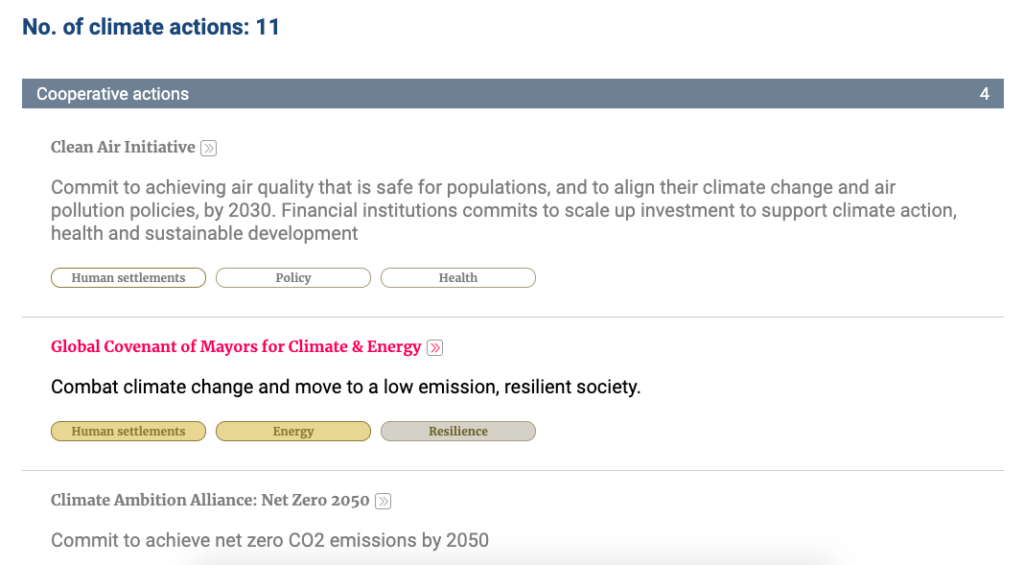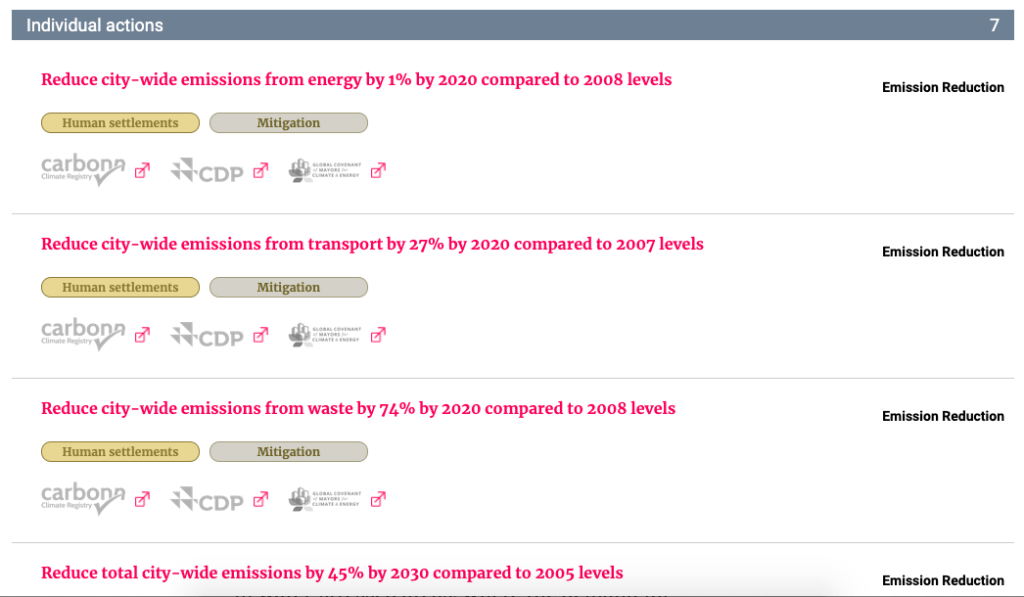A year ago, in the lead up to the 2019 Climate Action Summit in New York, the UN and several of its agencies called on all governments — municipal, regional and national — to join a new Clean Air Initiative, essentially committing to achieving safe, healthy air quality and to aligning their climate change and air pollution policies by 2030.
Governments of 138 cities, regions and countries, including 20 BreatheLife members, have since joined the initiative, led by the UN, the World Health Organization (which sets out air quality guidelines values for major air pollutants) and Climate and Clean Air Coalition.
Their commitments and actions have now been categorised and documented in new database under the Global Climate Action platform of the UN Framework Convention on Climate Change,
City and region pages include an overview of action, numbers of actions by theme and type, and details of cooperative actions and individual actions, while country reports are more detailed.


By joining the Clean Air Initiative, the cities, regions and countries were asked to meet their commitment to safe air quality through pledging to specific actions, for example, as appropriate:
- Implementing air quality and climate change policies that will achieve the WHO Ambient Air Quality Guideline values.
- Implementing e-mobility and sustainable mobility policies and actions with the aim of making a decisive impact on road transport emissions.
- Assessing the number of lives that are saved, the health gains in children and other vulnerable groups, and the avoided financial costs to health systems, that result from implementing their policies.
- Tracking progress, sharing experience and best practice through an international network supported by the UN system.
The call came as part of a wider movement to harness social and political drivers to improve people’s health, reduce inequities, promote social justice and maximize opportunities of decent work for all, while protecting the climate for future generations.
For background, please refer to:
- United Nations announces 2019 Climate Action Summit ‘Clean Air Initiative’, calls on governments at all levels to join
- UN urges governments to act on climate and air pollution for health’s sake
ACCESS THE DATABASE HERE
Banner photo: © WHO / Anna Kari
